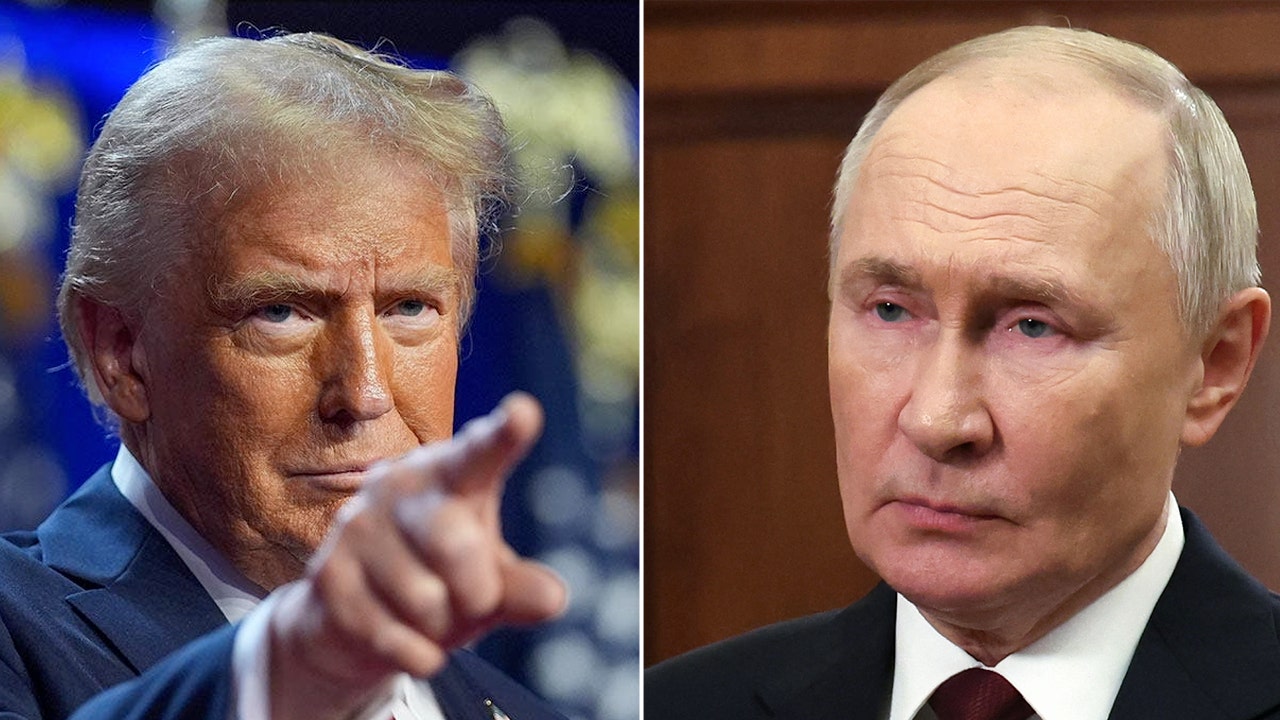Politics
Russia says US relations ‘on the brink of a breakup,’ won’t confirm Trump-Putin talk

The Brink of Collapse: U.S.-Russia Relations Under Strain
Russian President Vladimir Putin’s regime has warned that relations between Washington, D.C., and Moscow are teetering on "the brink" of collapse. This stark assessment was delivered by Russian Deputy Foreign Minister Sergei Ryabkov during a press conference earlier this week. Ryabkov reinforced Putin’s long-standing position that peace in Ukraine can only be achieved if the country abandons its aspirations to join NATO and surrenders control of Russian-occupied regions. The deputy foreign minister emphasized the urgency of the situation, stating, "We simply imperatively need to get… the new U.S. administration to understand and acknowledge that without resolving the problems that are the root causes of the crisis in Ukraine, it will not be possible to reach an agreement." This warning underscores the deepening rift between the two global powers and highlights the Kremlin’s unyielding stance on Ukraine.
Trump Weighs In: Calls for Peace and Unconfirmed Diplomacy
In a parallel development, former U.S. President Donald Trump, who recently returned to office, has expressed his desire to mediate the conflict in Ukraine. Speaking to reporters aboard Air Force One on Sunday, Trump revealed that he has spoken with Putin and expects to have "many more conversations" aimed at ending the war. "I hate to see all these young people being killed. The soldiers are being killed by the hundreds of thousands," Trump lamented, emphasizing the human cost of the ongoing conflict. However, a spokesperson for the Russian leader later declined to confirm the call, casting doubt on the extent of direct communication between the two leaders. Despite this uncertainty, Trump remains optimistic about his ability to broker peace, signaling that his administration may prioritize diplomatic efforts in its fourth week in office.
Zelenskyy’s Dual-Track Strategy: Peace Talks and Mineral Deals
Meanwhile, Ukrainian President Volodymyr Zelenskyy is actively exploring multiple avenues to secure his country’s future. Zelenskyy is set to meet with U.S. Vice President JD Vance at the Munich Security Conference later this week, where discussions are expected to focus on strengthening U.S.-Ukrainian ties and advancing Kyiv’s war efforts. In a recent interview with Reuters, Zelenskyy expressed his willingness to "do a deal" with the Trump administration, offering to supply the U.S. with rare-earth minerals in exchange for continued military and economic support. These minerals, critical for advanced technologies, are in high demand, and Ukraine possesses significant reserves—approximately 20% of which are currently located in Russian-controlled territories.
Zelenskyy has also reiterated his openness to engaging in peace talks with Russia, though the terms of any potential agreement remain unclear. The Ukrainian leader has stressed the need for robust "guarantees" of future security, given Russia’s history of violating past agreements, such as the 1994 Budapest Memorandum. This cautious approach reflects the precarious nature of Ukraine’s position, as it seeks to balance its immediate need for international support with its long-term aspirations for sovereignty and stability.
Rare-Earth Minerals: A Strategic Bargaining Chip
The proposal to trade rare-earth minerals for U.S. backing is a key component of Zelenskyy’s "victory plan," which he first introduced to Western allies last fall. By leveraging Ukraine’s mineral wealth, Zelenskyy hopes to strengthen his country’s position in negotiations with both the U.S. and Russia. Rare-earth minerals are essential for the production of modern technologies, from smartphones to advanced military hardware, making them a highly sought-after resource. However, approximately half of Ukraine’s rare-earth reserves are currently under Russian control, complicating any potential deal.
This strategy underscores Ukraine’s efforts to diversify its diplomatic and economic partnerships, ensuring that it is not entirely dependent on any single nation or bloc. By offering the U.S. access to these critical resources, Zelenskyy aims to create a mutually beneficial relationship that bolsters Ukraine’s position in the global arena. At the same time, the offer serves as a reminder of the high stakes involved in the conflict, as the control of strategic resources becomes a pivotal factor in shaping the geopolitical landscape.
A Meeting in Munich: Diplomacy and Challenges Ahead
The upcoming meeting between Zelenskyy and Vice President JD Vance at the Munich Security Conference is widely seen as a critical opportunity for both sides to iron out details of a potential deal. The conference, a premier forum for global security discussions, provides a platform for world leaders to address pressing challenges and explore pathways to peace. For Zelenskyy, the meeting represents a chance to secure concrete commitments from the U.S., ensuring that Ukraine’s security and economic needs are met as the war


















